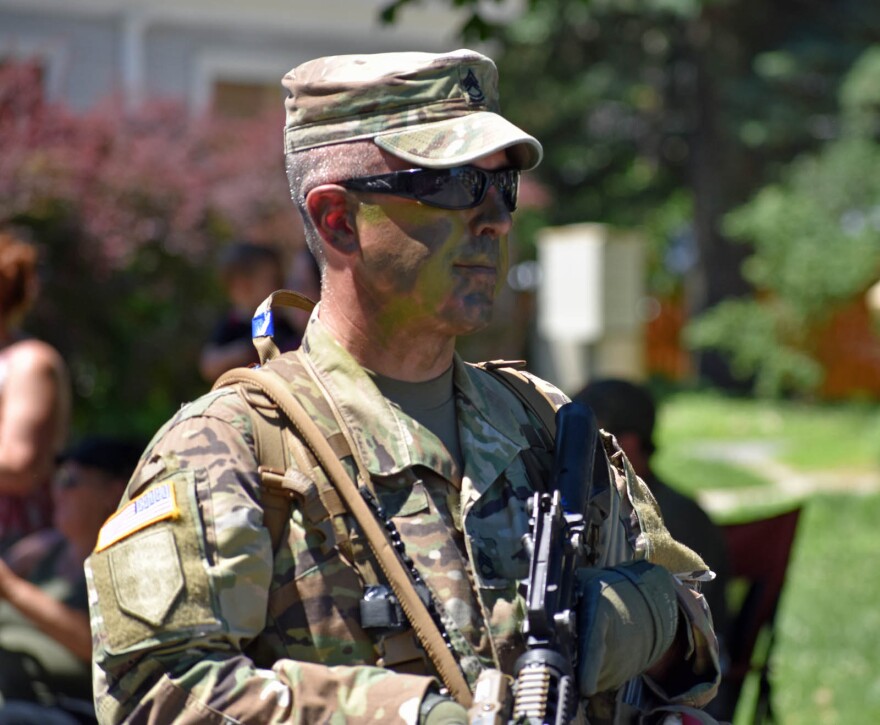New York Senator Kirsten Gillibrand is co-sponsoring a measure targeting food insecurity in the military.
According to USDA estimates, in 2019, 22,000 active-duty service member households and 213,000 members of the Reserves and National Guard lived in households that received Supplemental Nutrition Assistance program or SNAP benefits.
New York Democratic Senator Kirsten Gillibrand says food insecurity among service members is a threat to military readiness and national security.
“The truth is nearly one in four active duty service members experience low food security. For some that means they must skip meals because there isn’t enough money for food. When you look at the general population of America just about one in ten households are food insecure. So your service members are more likely to face hunger than everybody else. Frankly that’s outrageous. Our service members risk their lives to keep us safe and their families face extraordinary burdens too. These families are crucial to our national defense. But no one is strong when they can’t get enough to eat. No military is strong when its people are hungry. And in a moment when the military is facing a recruitment crisis, we need to make sure those considering military service know that they and their families will be cared for.”
Gillibrand is a co-sponsor of S.497, the Military Family Nutrition Access Act. The bill’s stated intent is to “amend the Food and Nutrition Act of 2008 to exclude a basic allowance for housing from income for purposes of eligibility for the supplemental nutrition assistance program.”
“The problem is that when SNAP calculates eligibility for these benefits it counts basic allowance housing, or BAH, as income. BAH is a payment service members receive from DOD to cover the cost of off-base housing. The Military Family Nutrition Access Act would remove the SNAP requirement to count BAH as income allowing more families to qualify for SNAP assistance. In addition to excluding families that would otherwise be eligible the current system is also unfair specifically to service members because federal housing subsidies that civilians receive don’t count against them for SNAP eligibility. It makes no sense to treat our service members any differently.”
Congressman Pat Ryan, a Democrat from New York’s 18th District, is a military veteran and Vice-Ranking member of the House Armed Services Committee. He says the bill is critically important.
“I don’t think a lot of Americans realize almost a quarter of active duty service members, men and women willing to risk their lives for our country, are dealing with food insecurity right now. And because of a whole bunch of red tape and frankly bad legislation by Congress they don’t qualify for the same food assistance that other Americans do. So this legislation will fix that issue and make sure that if you’re willing to risk your life for our country you shouldn’t have to worry about putting food on the table. So I’m excited about the legislation. I’m excited too, when it’s reintroduced in the House, to cosponsor it in the House as well.”
Ryan says it’s outrageous that service members aren’t paid enough to provide critical needs for their families.
“We have to right that wrong. I spent 27 months serving in combat in Iraq and several of my soldiers under my command needed food assistance, needed lots of other financial help, even though they were receiving their pay. So we have to raise the pay for our service members, which is something that I’ve been very focused on and pushing for. And we have to help figure out how to lower all their costs from health care to food and housing. So, again, this is really important legislation to address the food insecurity component of that but we have to look across the board of what more we can do to keep faith with our service members.”
Senate co-sponsors of the bill include Democrats Richard Blumenthal of Connecticut and Peter Welch of Vermont and Maine Independent Angus King.


